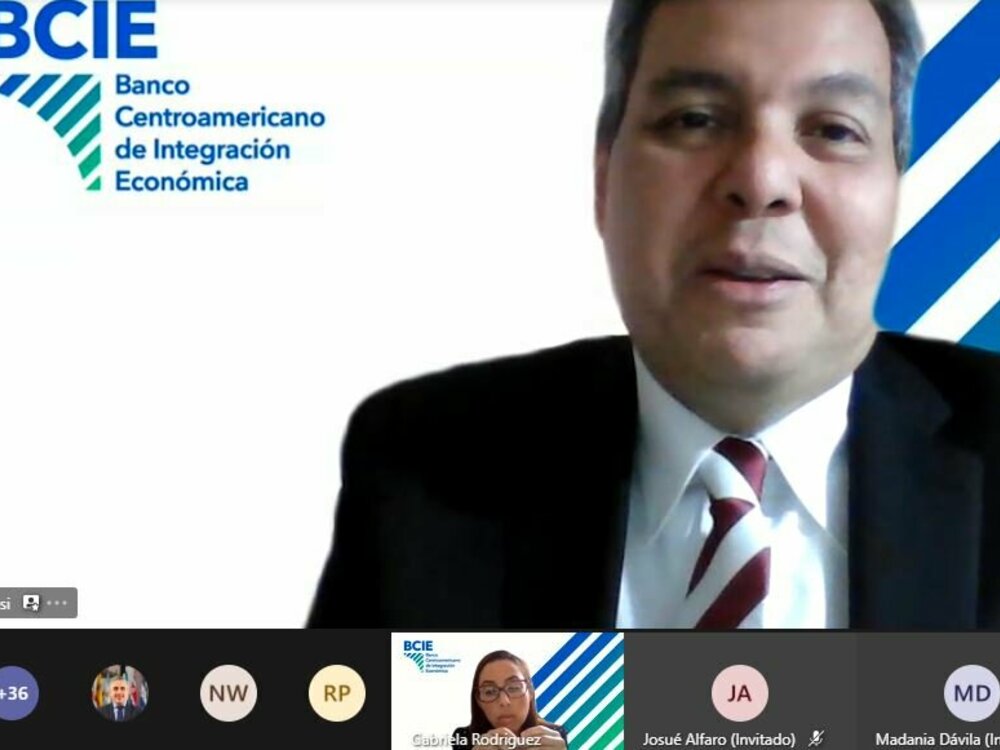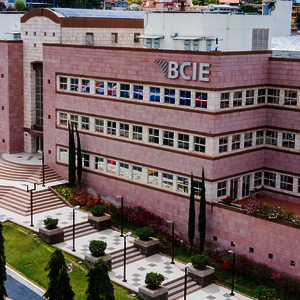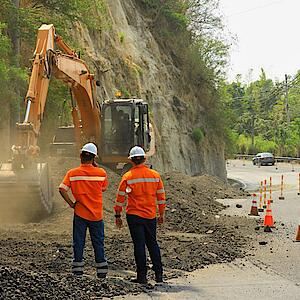CABEI: effective and timely financial solution for the region

In 2020, the multilateral approved US$3,459 million to countries in the region, benefiting more than 38 million people directly and indirectly.
Tegucigalpa, February 19, 2021.- Despite the economic difficulties and public health problems faced by the Central American region in 2020 due to the COVID-19 pandemic and the damage caused by hurricanes Eta and Iota, the Central American Bank for Economic Integration (CABEI) showed its solid support for its member countries.
This was achieved through effective and timely support for the benefit of Central Americans through the approval of 26 operations, of which 12 were programs and projects for a total of US$1.709 billion; 9 for financing global credit lines for US$649.2 million; and five Development Policy Operations for US$1.1 billion.
The approvals total US$3.459 billion. These include the following:
- Road infrastructure: 181.84 km of highway, including 11 traffic distributors (overpasses and underpasses), the rehabilitation of 302 km of highway, and the construction and rehabilitation of 21 bridges.
- Health sector: construction of a hospital with 521 beds and 43 health units and clinics, equipped with 794 beds. Its health units and clinics with emphasis on pandemic care.
- Education sector: construction of 34 education centers and 164 to be rehabilitated, for a total of 393 and the rehabilitation of 1,221 classrooms, as well as the construction of 21 laboratories and the rehabilitation of 54. In addition, the construction and rehabilitation of 261,743 m2 of cultural, sports and recreational areas is contemplated.
- Housing sector: construction of 19,637 homes with their title deeds and basic service connections.
In view of these achievements, CABEI Executive President, Dr. Dante Mossi explained, "With the development of the operations approved by CABEI in 2020, we expect to directly benefit more than 4 million people in social programs; close to 590,000 through the emergency fund; more than 55,000 students and 1,429 teachers; as well as some 110,000 athletes.
He said that 6.5 million people in Honduras will benefit from the issuance of personal identification documents. In addition, the indirect beneficiaries of the projects and programs are estimated at 34 million inhabitants and the generation of more than 143 thousand temporary and permanent jobs.
Structured programs in record time
In 2020, CABEI, as the region's strategic ally, structured two programs in record time to support its member countries in addressing and mitigating the effects of the pandemic and hurricane emergencies.
The US$2.6 billion Emergency COVID-19 Support and Preparedness and Economic Reactivation Program, made available to the countries of the region. Among its impacts and achievements are:
- The disbursement of US$293 million to 23 financial institutions in the region to support MIPYMES in sustaining jobs and economic reactivation. Accompanied by a Guarantee Fund to facilitate access to credit.
- The expected beneficiaries amount to 45,304 natural persons and 13,645 legal entities, allowing for the employment of an average of 58 additional persons, of which 10,866 have indicated that they are MIPYMES.
- The Credit Program to Support the Founding Countries' Central Banks' Liquidity Management was implemented, and Honduras and Nicaragua each received US$200 million in funds.
- CABEI became the first Multilateral Development Institution to issue a COVID-19 Vaccine Bond and then issued a second bond in the Asian market, raising a total of US$100 million from the capital markets.
- In January 2021, the Bank approved an increase of up to US$400 million for the procurement and delivery of COVID-19 vaccines to eight countries of the Central American Integration System (SICA), allowing each country to have an allocation of US$100 million.
- Its Financial Sector Support Facility for the Emergency COVID-19 Support and Preparedness and Economic Reactivation Program for MIPYMES affected by the pandemic was increased to US$350 million.
The second initiative is the Central American Resilient Reconstruction Program, following the effects of hurricanes Eta and Iota, for an available amount of US$2.5 billion to finance projects to prevent disasters and calamities, as well as to restore livelihoods and create opportunities in affected communities.
At the same time, the multilateral promotes the issuance of Green and Social Bonds in international capital markets and in the Central American region to facilitate the attraction of specialized investors and the movement of capital to projects and programs of high social impact through the issuance of bonds.
CABEI became the first multilateral institution to formulate a response to the emergency by issuing the first Global Social Bond in the International Capital Markets in February 2021.
CABEI once again proved its financial soundness at the close of 2020 with the highest approval and disbursement figures in 60 years since its founding.

![[Translate to English:] [Translate to English:]](/fileadmin/_processed_/e/3/csm_WhatsApp_Image_2024-04-18_at_2.12.23_PM__2__590ef43ade.jpeg)

